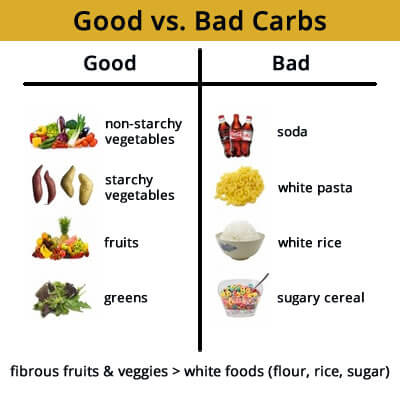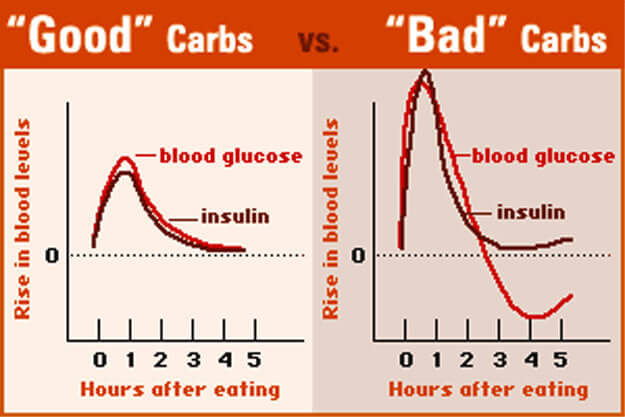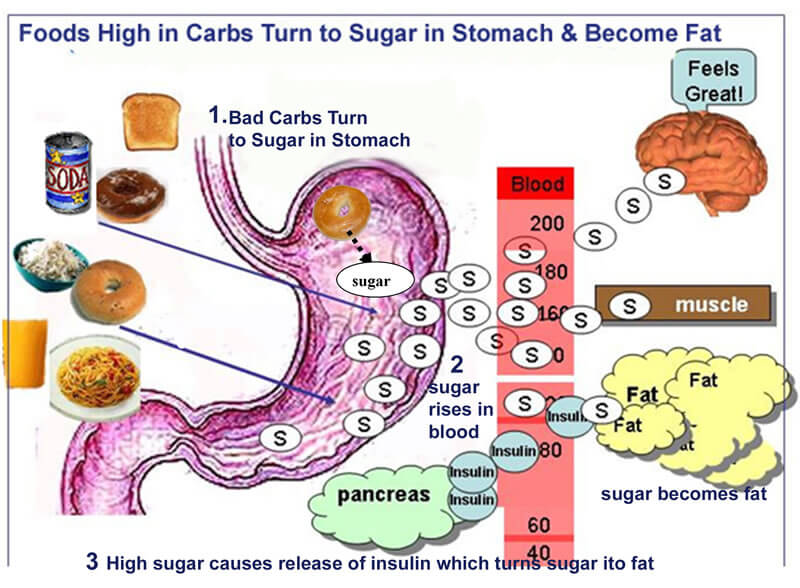What Are The “Bad Carbs” And Why Are They So Dangerous?
Our bodies react badly to high levels of blood sugar. High levels of blood sugar injure blood vessels, the retina of the eye, as well as the nerves in our arms and legs. Since carbs are used for energy before fat and protein, increasing daily activities and metabolism might be a good way to lower blood sugar to normal levels. Unfortunately, it’s almost impossible to change our metabolism enough to make a difference and it’s very difficult to coordinate the timing of blood sugar spikes with physical activity.
Bad carbs are those carbs including sugar and foods that quickly turn to sugar such as soda, rice, pasta, potatoes, donuts, cake, candy and some breads. Here are some of the good vs. bad carbs:
What happens when you eat the “bad carbs”? They behave exactly as if you ate or drank pure sugar. The blood sugar quickly spikes upward which is followed by a spike in insulin. High insulin then turns the sugar into fat. The falling sugar produces hunger and need for more carbs.
The figure below shows how our bodies handle carbs in much more detail. In this figure, the white ovals represent carbs changed into sugar in the stomach and rapidly absorbed into the blood. The sugar travels to the brain, where it triggers sensations of comfort and pleasure, and to the muscles, where it provides energy.
Extra sugar, when not used, is converted to fat by insulin; this fat is stored around the belly. Fat accumulation around the belly is due to sugar turning to fat &emdash; it is not caused by fat turning to fat.
Bad Carbs Cause Hunger
Sugar that is not immediately utilized causes insulin to be released by the pancreas. Insulin lowers the sugar by converting the sugar into fat. Often the pancreas “overreacts” and releases too much insulin. The result is a rapid fall in blood sugar and the resulting hunger and the need for even more food. A viscous cycle of more and more eating and more and more hunger is set off by this mechanism. I hear the same story every day, “My Eating is Out of Control.” All of this happens when blood sugar rises and falls. The falling sugar causes hypoglycemia, fatigue, anxiety and hunger.





Leave a Comment